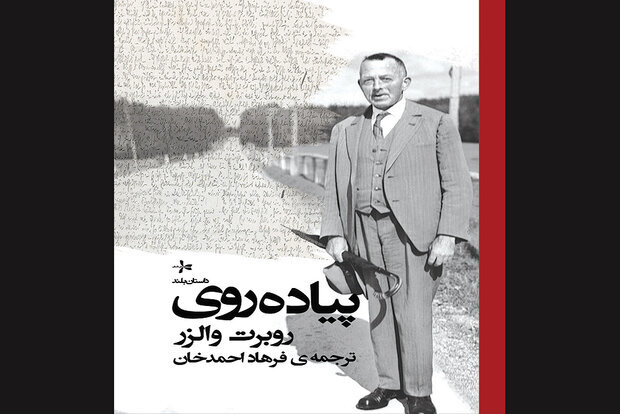Robert Walser’s “Walk” at Iranian bookstores

TEHRAN – German-Swiss writer Robert Walser’s “The Walk” has been published in Persian in Tehran.
Iranian publisher Dastan has acquired the copyrights of the Persian translation from Suhrkamp Verlag, the German publisher of the original book in Berlin.
The book has been rendered into Persian by the German-based Iranian translator Farhad Ahmadkhan.
An English translation of the book by Christopher Middleton has also been published.
“For me, the sketches I produce now and then are shortish or longish chapters of a novel,” Walser said about the book.
“The novel I am constantly writing is always the same one, and it might be described as a variously sliced-up or torn-apart book of myself.”
One of the great writers of the twentieth century - and an important influence on Kafka - comes to light in this selection of the best of his short fictions.
Through his protagonists - young men of modest means, famous artists, society women, animals endowed with the gift of speech - Walser captures the dislocated unease of life in early twentieth-century Europe.
Ranging from one-page fantasies to novella-length studies of everyday existence, “The Walk” reveals the irresistible genius of the great writer.
Under-appreciated even in his own lifetime, Walser has nonetheless been recognized by such writers as W.G. Sebald, Susan Sontag, Franz Kafka, Herman Hesse and J.M. Coetzee.
Like Kafka and Sebald, Walser wrote about the solitude and unease of human existence. Honest, wry and idiosyncratic, his stories are snapshots of the lives great artists, poor young men, beautiful women and talking animals alike. Ranging from the realist to the allegorical, the short fiction collected in this volume demonstrates Walser’s uncanny ability to capture both life’s strangeness and its small joys.
Walser’s writing is characterized by its linguistic sophistication and animation. His work exhibits several sets of tensions or contrasts: between a classic modernist devotion to art and a ceaseless questioning of the moral legitimacy and practical utility of art; between a spirited exuberance in style and texture and recurrent reflective melancholy; between the disparate claims of nature and culture; and between democratic respect for divergence in individuals and elitist reaction to the values of the mass culture and standardization of the industrial age.
Photo: Front cover of the Persian version of Robert Walser's “The Walk”.
MMS/YAW
Leave a Comment